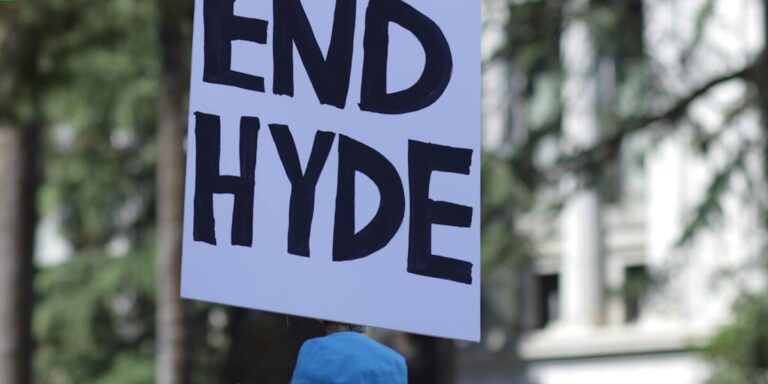Do all wills in Florida have to go through probate?
The process of probate is an important part of Florida inheritance law with will. When a person passes away, their assets must be distributed according to the terms set out in their last will and testament. In order for this distribution to take place, it’s necessary that all wills go through the legal process known as “probate”. This article aims to answer questions about whether or not all wills in Florida have to go through probate.
Probating a will can be complicated and time consuming; if you’re dealing with estate planning issues related to someone who has passed away, then consulting a qualified attorney may help make sure everything goes smoothly during this difficult period. A knowledgeable lawyer experienced in Florida inheritance laws regarding wills can provide invaluable guidance throughout the entire probate procedure – from filing documents correctly at court right up until finalizing distributions among beneficiaries.
What is Probate and How Does it Affect Wills in Florida?
Probate is the legal process of authenticating a will and distributing an estate according to its terms. In Florida, when someone dies with assets in their name only (i.e., not held jointly), those assets must go through probate before they can be distributed among heirs or beneficiaries named in the decedent’s will. Probate court ensures that all debts are paid off from the deceased person’s estate and any remaining property is then divided as outlined by state law if there isn’t a valid will present at death, or as stated within it if one exists.
When dealing with wills and estates during probate proceedings, having an experienced attorney on your side can make all the difference between getting what you’re entitled to receive under Florida inheritance laws versus losing out due to technicalities or delays caused by mismanagement of paperwork related to settling these matters legally. A qualified lawyer who specializes in this area understands how best navigate local regulations while protecting clients’ rights throughout each step of this complex process so they get what was intended for them without unnecessary complications along way..
Understanding the Requirements for a Valid Will in Florida
When it comes to estate planning, understanding the requirements for a valid will in Florida is essential. The state of Florida has specific rules and regulations regarding what constitutes a legally binding document when distributing assets upon death. In order to be considered valid under Florida law, all wills must include certain information such as:
The testator’s name (the person making the will)
A statement that revokes any prior wills or codicils
Identification of beneficiaries who are receiving property from the deceased’s estate
Designation of an executor who is responsible for administering the decedent’s wishes Additionally, there must also be two witnesses present at signing; these individuals cannot benefit from being named in said Will either directly or indirectly. If any one element listed above is missing then it may not hold up during probate court proceedings which can lead to costly delays and even disputes among family members over inheritance rights and entitlements . A knowledgeable probate lawyer can help ensure that your last wishes are carried out properly by ensuring you have taken all necessary steps required by law so your loved ones receive their rightful inheritances without issue after you pass away .
Benefits of Consulting with a Probate Lawyer When Drafting Your Will
When it comes to drafting a will, consulting with an experienced probate lawyer is the best way to ensure that your wishes are accurately represented. A qualified attorney can provide valuable advice on how Florida inheritance law applies in your specific situation and help you navigate any potential issues or disputes related to estate planning.
A probate lawyer has extensive knowledge of state laws regarding wills and trusts, as well as tax implications for beneficiaries who may receive assets from an estate. They understand the nuances of distributing property among multiple heirs while minimizing taxes owed by all parties involved. Additionally, they have experience working through complicated family dynamics when there’s disagreement over what should be included in a will or trust document; this ensures that everyone’s interests are fairly addressed before signing off on anything legally binding. Finally, if necessary they can also represent clients during court proceedings involving challenges against existing documents or claims made after someone passes away without leaving behind instructions about their final wishes
Exploring Alternatives to Going Through Probate With an Inheritance in Florida
When a person passes away, their assets must be distributed according to the terms of their will. In Florida, this process is known as probate and it can take months or even years for an estate to go through probate court before beneficiaries receive what they are due from the deceased’s estate. This can cause significant delays in inheritance distributions which could have serious financial consequences if there were dependents who needed immediate access to funds that would otherwise not be available until after the completion of probate proceedings. Fortunately, those dealing with an inheritance in Florida may explore alternatives that do not require going through traditional channels such as filing petitions and appearing at hearings; these include setting up trusts prior to death so that assets pass directly without any involvement by courts or other third parties. A qualified attorney specializing in wills and estates law should also be consulted since they understand how state laws apply when determining eligibility for certain exemptions from formal administration procedures like small estates affidavits (which allow heirs/beneficiaries bypassing some parts of a lengthy process). Additionally, attorneys experienced with Inheritance Law With Will matters are well-versed on all aspects related thereto including avoiding costly mistakes while ensuring compliance with applicable statutes throughout each step involved within the entire succession planning journey – ultimately helping clients save time & money along the way!
Frequently Asked Question
-
Do all wills in Florida have to go through probate?
-
Who are legal heirs in Florida?
-
What assets avoid probate in Florida?
-
Who gets property after death in Florida?
-
Can you avoid probate with a will in Florida?
-
What are the laws concerning wills in Florida?
-
What are the beneficiary laws in Florida?
-
How long does it take to receive inheritance after death Florida?
-
Does a beneficiary override a will in Florida?
-
Do all heirs have to agree to sell property in Florida?
Florida Probate: Is it required? Florida law requires probate to be completed in most instances of a person’s death. Only two exceptions to this rule are: if assets cannot be transferred to the listed beneficiary or were in a living trust.
(20) The term heirs (or heirs at the law) refers to all persons who, together with the spouse, are entitled by the statutes of intestate succession to inherit the decedent’s property.
Assets that are not subject to probate include joint property, land, and bank accounts, as well assets with beneficiary designations, which can be payable upon death (life insurance, annuities, IRAs).
If you’re not married, the Florida Intestacy Statutes will give everything to your descendants. This includes your children. Your share will pass to the children of a deceased child. If there is no child, your shares will go to their children. Your estate will pass to your parents if there aren’t any children.
Is it possible to avoid probate by making a will? A common belief is that Wills can be avoided probate. This is totally false. The will cannot avoid probate. Truth is, a will does not avoid Probate. It outlines the wishes of the deceased and names beneficiaries. The Personal Representative acts as the administrator.
Florida law requires that a will or testament be written. Florida probate courts do not allow oral statements (nuncupative) nor handwritten instructions by a testator (holographic wills). These are considered invalid wills. Only made by an authorized person.
The inheritance, which excludes the rights of the spouse who is still living, will be split equally among the children after the death of their parents. After the death of their parents, children who are biological take priority. The same applies to children who are not related.
In most cases, the formal probate administration takes between 6-9 months from start to finish. The process involves appointing an executor (or personal representative), a creditor period of 90 days, and payment of creditors’ claims.
Your Florida will and testament takes precedence over the beneficiary designation.
One heir may sell the whole property or mortgage it. However, an individual heir can still sell his/her interest to another person, regardless of whether they have consented to the sale.
Conclusion
In conclusion, it is important to remember that all wills in Florida must go through probate. If you are looking for a lawyer who specializes in inheritance laws and can help with the process of probating your will, make sure to do thorough research on their qualifications and experience. Our website provides trusted links and reviews so you can find an experienced attorney who understands Florida’s inheritance law when dealing with wills. Taking the time to properly research before making any decisions about your estate planning needs will ensure that everything goes smoothly during this complex legal process.







